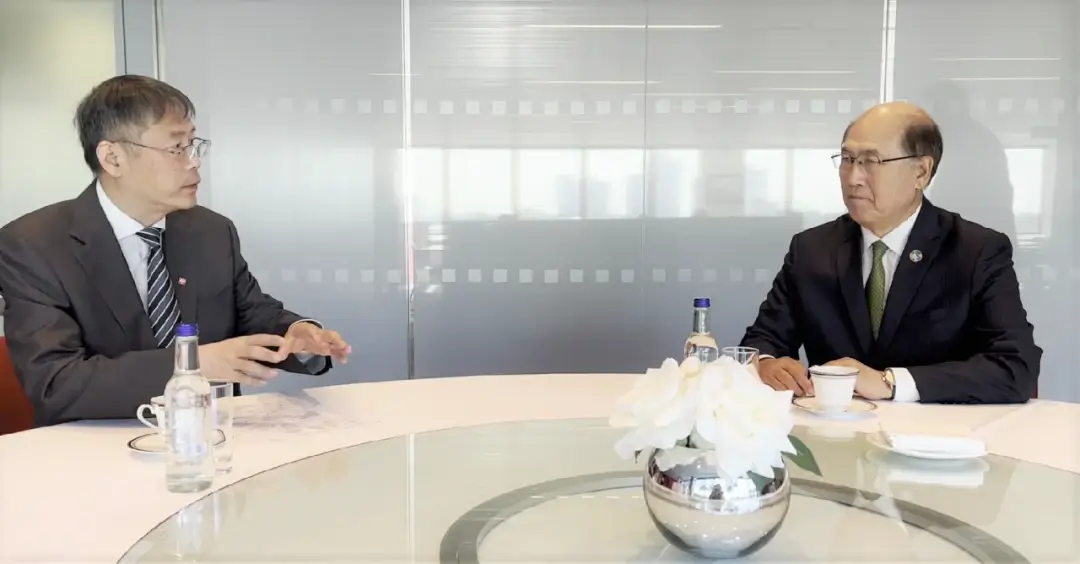From July 2 to July 7, 2023, the 80th meeting of the Environmental Protection Committee of the International Maritime Organization (IMO) (MEPC80) was held in London, England. The meeting focused on technical issues such as reduction of maritime greenhouse gas emissions and regulatory control of ship carbon dioxide emissions.
On July 7th, MEPC80 adopted the “2023 International Maritime Organization Greenhouse Gas Strategy” (hereinafter referred to as “IMO Emission Reduction Strategy”), which clarified the strategic goal of achieving the peak of international maritime greenhouse gas emissions as soon as possible and reaching net zero emissions around 2050 . According to the phased tasks, among them, 1) By 2030, the proportion of zero/near-zero greenhouse gas emission technology, fuel and/or energy use will reach at least 5%, and strive to reach 10%, to achieve the proportion of the total annual international maritime greenhouse gas emissions In 2008, reduce by at least 20%, and strive to reduce by 30%; 2) By 2040, reduce the total annual international maritime greenhouse gas emissions by at least 70% compared with 2008, and strive to reduce by 75%.

Li Yanqing, secretary-general of the China Shipping Association and chairman of the International Organization for Standardization Ship and Ocean Technology Committee (ISOTC8), communicated with IMO Secretary-General Lin Jize during the meeting, saying that the proposal of the IMO emission reduction strategy is the first step in the world’s maritime greenhouse gas emission reduction. A milestone that creates market opportunities and challenges for the development of world maritime environmental protection technology in the next 30 years. China is currently a major shipbuilding country in the world. The close integration of China’s shipbuilding industry’s complete industrial chain supply system, rich technology application scenarios, and international maritime standards will surely play an important role in promoting the implementation of the IMO emission reduction strategy. Lim Keize appreciated Li Yanqing leading ISOTC8 to actively support IMO to carry out relevant work in the past 8 years, and hoped that in the future, the standardization of the international maritime industry will inject more impetus into the promotion of IMO’s emission reduction strategy. Shi Yao from the ISOTC8 Secretariat participated in the exchange.
.webp)
Xie Yu, Director of the International Department of China Shipbuilding Association and the Federation of Active Shipbuilding Experts (ASEF), Wang Xuan, Director of the Maritime Affairs Department of the Eleventh Research Institute of China Shipbuilding Corporation, Secretary General of ASEF, Doctor of the Eleventh Research Institute of China Shipbuilding Corporation, ASEF Zhang Yunsong, an expert of the Greenhouse Emission Reduction Working Group, participated in the MEPC80 meeting on behalf of ASEF and sponsored the IMO tea break. ASEF, Norway, South Korea, Japan, and Liberia jointly proposed a proposal to support onboard carbon capture technology as a transitional technical solution for the IMO emission reduction strategy, which was adopted by this meeting and served as a basic document, which will be a separate topic during the ISWG-GHG16 meeting to continue the discussion. ASEF Secretary-General Wang Xuan commented during the meeting that, as an international organization representing the international shipbuilding industry, ASEF will actively organize members of the organization to carry out technical seminars and technical screening, and is committed to providing industrial technical information and feasible solutions for the IMO emission reduction strategy .

